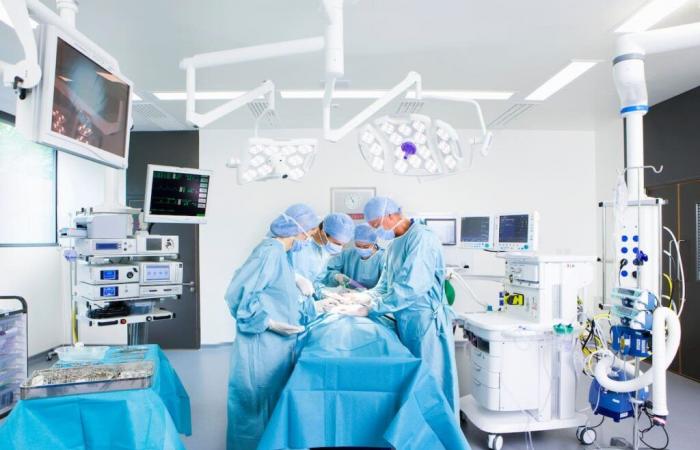Associations that nucleate 21 specialties doctors They went out to express their concern about structural problems that the Health system drags and does not end up solving throughout the country. Delays in the attention and difficulty in achieving shifts, saturated guards by low -risk consultations, dropout in the medical residences of unchanged vacancies in key specialties and deterioration of professional income are just some of those difficulties that the members of the Argentine Medical Societies Forum.
For the authorities of these institutions, the crisis that the health sector is going through remains “serious” and is impacting both the quality of the care that patients receive and in the professional practice and the daily performance of doctors.
“We are attending care in care, including urgencies; collapsed guard services that only receive patients in life risk situations; depopulated medical residences because young professionals choose other paths, and shifts for care or studies with more than two months of delay, among many other deficiencies,” he described Gabriel Persivice president of the Argentine neurological society (SNA), signer of the statement released in the last hours. “As the situation is given, the professional cannot provide the level of service for which he formed and the patient receives deficit care,” he said.
Professional associations agree that these problems were pending the functioning of the entire health system over the years to weaken it in their capacity and quality of response to the couple of socio -economic crises in the country and absence of appropriate public policies so as not to continue damaging it, both in its organization and its human resources, and in its financing.
A working group that ended up becoming the Argentine Medical Societies Forum since the Covid-19 Pandemia had been having meetings with health officials to account for that scenario and take measures to reverse it. The holders of the entities that comprise them are concerned about “the deterioration of the system globally”, with emphasis on the performance that professionals are having, their level of training and fees, the functioning of health services and, with this, the inequality of which they remain witnesses in the access of patients to a good quality and timely care.
They agree that although the crisis of the health system ended up intensifying from the pandemic, its causes have “several five years” accumulating. “It has to do with a chain of several decades,” he said Ricardo CorralPresident of the Argentine Association of Psychiatrists (AAP).
A “critical” situation at this time that he used to describe that scenario in dialogue with The nation They were the contests for positions in hospitals. “They were always very coveted and, today, they are deserted because there are no applicants,” he said. In the recent search for the position of Chief of Guard Unit at a Hospital Specialized School in Mental Health, there were no presentations.
Something similar occurs in the case of quotas for guard doctors. “They do not reach the applicants for the amount of positions that are,” said Corral. ” As we also see what happens with teachers in schools, it did not happen as is happening in medicine.
Pablo Stutzbach, President of the ARGENTINE SOCIETY OF CARDIOLOGY (SAC), said that the forum’s concern goes through “the deterioration of the system globally.” This new public care call is about this.
“We see that institutions, especially academics, who have research and teaching activity to train future doctors, it is very difficult for them to sustain themselves. Sustainability has been complicated over time,” he said. crisis.
-The SAC revealed that there are 15% of uncovered positions in the residences of cardiology services in Argentina, but a dropout of almost 30% among first year residents. “These data are replicated in the other specialties and, in some, it is even worse, as in intensive therapy and others – said Stutzbach -. The little attraction that is generating the training of residence and training concerns us in young doctors, but we must also say that it is very little motivating, after studying five or six years in the faculty, working four years in training, which is sine qua non In order to be a specialist in some discipline, with the working conditions that are there and with a labor exit that will not change radically. No one pays in the system the difference between having or not made residence today. Therefore, quality is not considered or rewarded. “
Corral agreed to point out that, although there is a “much offer” of vacancies for training when graduating from the Faculty, much of the new professionals choose not to do it, as it has been noting The nation In recent years with the Entry Exam for Residences.
“There are four years of very intense work, poorly paid and in bad working conditions – the psychiatrist placed.” For jobs abroad. ”
Population aging and the advancement of technologies are two other factors that the forum takes into account when analyzing the viability of the health system in which the professionals nucleated in their 21 scientific societies will work in the coming years. “In addition to institutions, human resource and their training, there is population change, which will lead to the system to spend much more because people live more, while progress made the costs of medicine increase exponentially, especially in new technologies and drugs, where the increase curve is well above the consumer price index (IPC),” Stutzbach said.
It is that, as they have been pointing from the forum and how officials, providers and financatives, including unions, a relevant discussion not only in the country, but also in the world, which will happen to the health system?
“In Argentina,” said the president of the SAC, “may be much more exacerbated by the crisis in human resource, system and institutions and the lack of a serious health project, in which priorities, investment, administration and what are we going to spend as a country according to our reality. Assemble a system for the next 20 years, which is the great challenge we have ahead. ”
The Intersociedades forum, to Claudio MartínPresident of the Argentine Association of Clinical Oncology (AAOC), arose to “alert society and leaders about the difficulties that the health system is going through, where we are attending care in care, collapsed places, medical residences that are not completely covered, delays in turns for care and conducting studies, among other deficiencies, which make the medical professional cannot provide adequate service and the patient receives deficit care.”
As his colleagues, he pointed out that, in that sense, among the objectives of the Forum is also “proposing solution alternatives to improve these conditions.”
With the AAP, the SAC, the AAOC and the SNA, the Argentine Association of Surgery, the Argentine Association of Respiratory Medicine, the Argentine Transplant Society, the Argentine Society of Intensive Therapy, the Argentine Society of Medicine, the Argentine Society of Gastroenterology, the Argentine Association of Orthopedics and Traumatology, the Argentine Federation of Societies of Otolaryngology, the Argentine Society of Diabetes, the Argentine Society of Diabetes, the Argentine Society of Diabetes, the Argentine Society of Diabetes, the Argentine Society of Diabetes. Argentine Society of Dermatology, the Argentine Society of Hepatology, the Society of Obstetrics and Gynecology, the Argentine Society of Nephrology, the Argentine Rheumatology Society, the Argentine Society of Nutrition and the Argentine Society of Psoriasis.
According to The criteria of






